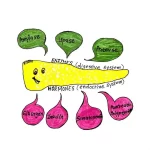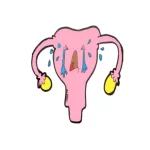Wyethia, commonly known as Poison-weed, is a homeopathic remedy derived from the flowering plant of the Wyethia genus.
It is known for its marked effects on the throat and has proven efficacy in treating conditions such as pharyngitis, haemorrhoids, hay fever, and various throat-related symptoms.

Table of Contents
ToggleSOURCE INFORMATION
- Wyethia belongs to the Asteraceae family, which is commonly known as the aster, daisy, or sunflower family.
- Origin and History: Wyethia is a genus of flowering plants native to North America, particularly found in western regions of the United States and Canada.
- The genus is named after the American explorer and botanist Nathaniel Wyeth.
Interesting Facts
- The common name “Poison-weed” suggests that some species within the Wyethia genus may be toxic to humans or animals if ingested.
- However, not all species are poisonous, and some have traditional medicinal uses.
- Some species of Wyethia are known for their showy, daisy-like flowers, making them attractive additions to gardens and landscapes.
- Indigenous peoples of North America, such as Native American tribes, may have historically used certain species of Wyethia for medicinal purposes, although specific uses may vary among tribes.
Botanical Description
- Wyethia plants are herbaceous perennials or annuals, characterized by their basal rosettes of leaves and tall flower stalks.
- The flowers are typically yellow and resemble daisies, with long petals radiating from a central disc.
Cultural Significance
Some species of Wyethia may have been historically used by indigenous peoples for food, medicine, or ceremonial purposes, highlighting their importance in traditional ecological knowledge and practices.
DRUG PATHOGENESIS
- Wyethia exerts its specific action on the throat and mucous membranes.
- It is indicated for conditions such as pharyngitis, haemorrhoids, hay fever, and respiratory issues.
- The remedy is known to cause sensations of heat, dryness, swelling, and irritation in the throat and respiratory tract.
KEY CHARACTERISTICS
- Throat symptoms: Wyethia is indicated for conditions like pharyngitis, with symptoms such as constant clearing and hemming, dryness in the posterior nares, and difficulty swallowing.
- Head symptoms: It may cause nervousness, dizziness, and sharp pains in the forehead.
- Respiratory symptoms: Dry, hacking cough, burning sensation in the bronchial tubes, and hoarseness are common.
- Gastrointestinal symptoms: Sense of weight in the stomach, belching alternating with hiccough, and nausea.
- Female symptoms: Pain in the left ovary, extending down to the knee, and pain in the uterus.
PARTICULAR ORGAN SYMPTOMS
Head
- Feeling nervous, uneasy, and depressed.
- Experiencing dizziness and a rush of blood to the head.
- Sharp pain is felt in the forehead.
Mouth
- Sensation of being scalded; feels hot down the throat.
- Itching in the palate (roof of the mouth).
Throat
- Constant need to clear the throat and hemming.
- Dryness in the back of the nose; clearing does not help.
- Throat feels swollen, and the epiglottis (flap covering the windpipe) is dry and burning.
- Difficulty swallowing and a constant urge to swallow saliva.
- Uvula (hanging tissue in the throat) feels elongated.
Stomach
- Sense of heaviness in the stomach.
- Alternating belching of wind and hiccups.
- Nausea and vomiting may occur.
Abdomen
- Pain felt below the ribs on the right side.
Stool
- Loose, dark stools at night.
- Itching around the anus.
- Constipation with haemorrhoids, but no bleeding.
Respiratory
- Dry, hacking cough caused by tickling in the epiglottis.
- Burning sensation in the bronchial tubes.
- Tendency to become hoarse while talking or singing; throat feels hot and dry.
- Symptoms of dry asthma may be present.
Female
- Pain in the left ovary, shooting down to the knee.
- Pain in the uterus; can feel the outline of its shape.
Extremities
- Pain in the back that extends to the end of the spine.
- Pain in the right arm, with stiffness in the wrist and hand.
- Aching pains felt all over the body.
Fever
- Chills experienced around 11 a.m.
- Thirst for ice-water during the chill.
- No thirst during periods of heat.
- Profuse sweating throughout the night.
- Severe headache during sweating.
REMEDY RELATIONSHIP
Wyethia can be compared to remedies like Arum, Sanguinaria, and Lachesis.
DOSE
It is typically prescribed in potencies ranging from first to sixth.
Frequently Asked Questions
What conditions is Wyethia indicated for?
- Wyethia is indicated for throat conditions like pharyngitis, haemorrhoids, hay fever, and respiratory issues.
What are the key symptoms of Wyethia?
- Key symptoms include throat discomfort, dry cough, hoarseness, gastrointestinal disturbances, and female reproductive issues.
How should Wyethia be dosed?
- Wyethia is typically prescribed in potencies from first to sixth.
Meaning of Difficult Words
- Pharyngitis: Inflammation of the throat.
- Epiglottis: A flap of cartilage at the root of the tongue that covers the windpipe during swallowing.
- Bronchial tubes: Airways that carry air into the lungs.
- Haemorrhoids: Swollen and inflamed veins in the rectum and anus.
- Uvula: A fleshy extension at the back of the soft palate.
- Potency: The strength or concentration of a homeopathic remedy.













Leave a Reply